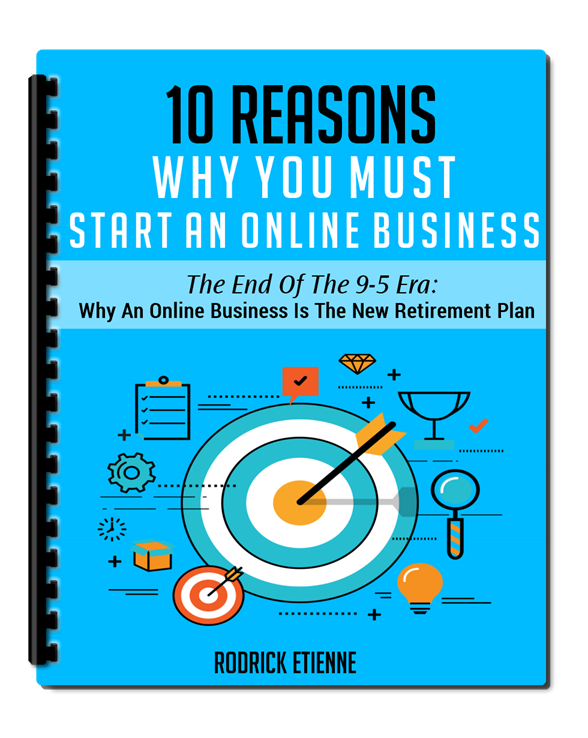Artificial Intelligence (AI) is no longer a concept reserved for Silicon Valley tech giants. With advancements…
10 Buyer Keyword Strategies For Local Businesses

Local businesses play a vital role in their communities, offering unique products, personal connections, and an authentic touch that larger corporations often struggle to replicate.
However, in an increasingly digital world, standing out in search engine results has become critical for attracting customers and driving growth.
This is where leveraging buyer keywords can make all the difference. Buyer keywords are search terms potential customers use when actively looking to purchase or engage with a service nearby.
By tailoring a keyword strategy specifically for your local market, you can connect with your audience at the exact moment they are looking for a solution you provide.
This article will explore 10 actionable buyer keyword strategies designed to help local businesses boost their online visibility, attract more targeted traffic, and ultimately increase their sales.
Whether you’re a family-owned coffee shop, a boutique clothing store, or a local contractor, these strategies will help you stay ahead in the competitive digital space.
1)) Geographic-Specific Keywords
Geographic-specific keywords are one of the most effective tools for local businesses to capture the attention of nearby customers.
These keywords incorporate location-based terms that directly tie your business to the area you serve.
For instance, a bakery in Austin would benefit from targeting keywords like “Austin bakery” or “best cupcakes in Austin,” as these phrases align perfectly with what a nearby customer might search for.
Including neighborhood names, landmarks, or even regional slang in your keyword strategy can further refine your approach and attract hyper-local traffic.
By integrating these location-focused terms into your website content, meta descriptions, and online ads, you can significantly improve your chances of appearing in localized search results.
This ensures that your business remains visible to local customers actively seeking services within your area, helping you not only stand out from non-local competitors but also establish stronger community connections.
2)) Service-Based Phrases
Service-based phrases are essential for connecting your business directly to the specific services or products you provide, ensuring potential customers can easily find you when searching for what you offer.
These phrases should highlight the core offerings of your business while being tailored to the needs of your target audience.
For example, a plumbing company might use keywords such as “emergency plumbing repair” or “water heater installation near me,” while a hair salon might focus on phrases like “professional hair coloring” or “bridal hairstyling services.”
Including these service-focused terms across your website, blog content, and online directories not only helps communicate your expertise but also positions your business as the go-to solution for those searching with clear intent.
Pairing these phrases with localized keywords further enhances your visibility by targeting customers in your immediate area, increasing the likelihood of conversions from people actively seeking the exact services you provide.
3)) Long-Tail Keywords
Long-tail keywords are an incredibly effective way for local businesses to attract highly targeted traffic, as they focus on very specific phrases that customers are likely to use when they are closer to making a purchasing decision.
These keywords tend to be longer and more detailed, such as “affordable wedding photographers in San Diego” or “vegan-friendly Italian restaurants near downtown Denver.”
While they might generate less overall search volume compared to shorter, more generic keywords, long-tail keywords often have significantly higher conversion rates because they target users with refined intent.
Integrating these into your website’s blog posts, FAQs, and product descriptions can help address niche customer needs and make your business stand out in relevant searches.
Long-tail keywords can help you compete more effectively by reducing direct rivalry with larger, less localized competitors who dominate broader keyword searches.
By strategically using long-tail keywords, local businesses can connect with their ideal audience, drive meaningful engagement, and turn online searchers into loyal customers.
4)) Competitor Analysis Keywords
Competitor analysis keywords can be a game-changer for local businesses looking to gain an edge in a competitive market.
These involve identifying the keywords your competitors are ranking for and strategically using them to capture a similar or overlapping audience.
By analyzing competing businesses within your area, you can determine which search terms are driving their traffic and discover potential gaps you can leverage.
For example, if a neighboring restaurant is ranking for “family-friendly dining in Chicago,” you might identify opportunities to fine-tune your keywords to target “best family-owned restaurant in Chicago” or “top-rated family meals downtown.”
Tools like SEMrush, Ahrefs, or Google Ads Keyword Planner can help you uncover these insights and craft a keyword strategy that either mirrors or differentiates from your competitors based on your unique selling points.
With a well-thought-out approach to competitor analysis keywords, you can position your business to attract customers in your market while staying one step ahead of the competition.
5)) Seasonal Keywords
Seasonal keywords are a powerful way for local businesses to align their marketing efforts with the changing needs and interests of customers throughout the year.
These keywords reflect trends, holidays, or seasonal events that influence consumer behavior, helping businesses stay relevant and capitalize on timely opportunities.
For example, a retail store can target phrases like “back-to-school deals in Tampa” or “holiday gift ideas for under $50” during the peak shopping season, while a landscaping service might emphasize terms such as “spring yard cleanup services near me” or “fall leaf removal in Nashville.”
By tailoring your keyword strategy to match seasonal demand, you can drive traffic during crucial periods, enhancing visibility when customers are actively searching for time-sensitive services or products.
Leveraging these keywords across your website, social media campaigns and ad copy also demonstrates your business’s ability to stay in tune with current trends, which builds trust and captures attention.
Seasonal keywords not only boost short-term results but can also help establish your brand as a reliable and proactive provider year-round.
6)) Problem-Solving Queries
Problem-solving queries are among the most valuable keywords for connecting with customers who are searching for solutions to their specific challenges or needs.
These types of searches often begin with phrases like “how to,” “best way to,” or “why does,” and they indicate that the user is looking for immediate answers or actionable guidance.
For local businesses, capturing these queries can establish you as a trusted expert and resource in your industry.
For instance, an HVAC company could target queries like “how to improve air conditioner efficiency in humid climates” or “why is my furnace making strange noises,” while a pet grooming service might focus on questions such as “best ways to reduce shedding in large dogs.”
Crafting informative blog posts, detailed FAQs, or even tutorial videos that address these issues not only improves your website’s search rankings but also builds credibility by demonstrating your understanding of customer pain points.
By aligning your content with problem-solving keywords, you can attract highly engaged visitors who are more likely to convert into satisfied clients because you’ve provided the help they needed at exactly the right time.
7)) Product-Specific Terms
Product-specific terms are essential keywords that directly connect potential customers to your unique offerings, making them an indispensable component of any local business’s SEO strategy.
These terms typically include the name of a product or service paired with descriptive qualifiers to help users find exactly what they need.
For example, a boutique bakery might target phrases like “gluten-free birthday cakes in Seattle” or “custom wedding cupcakes near me,” while an auto repair shop could focus on terms such as “affordable brake repair in Atlanta” or “Toyota oil change specialists in Austin.”
By prioritizing precise and detailed product-specific keywords, businesses can attract highly targeted traffic that has a clear intention to purchase or inquire.
Incorporating these terms across your website’s landing pages, product catalogs, and service descriptions facilitates easy searchability while catering to customers with distinct needs.
Effective use of product-specific keywords also enhances your competitive positioning by asserting your expertise in key areas, ensuring prospective buyers associate your business with their search intent and are encouraged to choose you over a more generalist competitor.
8)) Local Intent Keywords
Local intent keywords are critical for helping nearby customers find your business when they’re actively searching for products or services in their area.
These keywords typically include location-specific phrases, such as the name of a city, neighborhood, or even landmarks, which signal search engines to display local businesses in the results.
For instance, a coffee shop might focus on terms like “best espresso in downtown Portland” or “cozy cafes near Central Park,” while a dentist could target keywords such as “emergency dental care in San Diego” or “pediatric dentist in Brooklyn Heights.”
Incorporating these keywords into your website, Google Business Profile, and online directories ensures that your business shows up in local search results, especially when paired with optimized map listings and customer reviews.
By strategically aligning your content with local intent keywords, you can boost visibility among a highly relevant audience who is more likely to visit or contact your business.
This targeted approach not only enhances your search engine ranking but also establishes your brand as a go-to solution in the community, fostering trust and loyalty among local customers.
9)) Buying Stage Keywords
Buying stage keywords are integral to guiding potential customers through the different phases of their purchasing journey, ultimately leading them to take action.
These keywords are typically tailored to match the intent of users at various decision-making stages, such as awareness, consideration, and purchase.
For example, a customer in the awareness stage may search for broad phrases like “best laptops for college students,” while someone in the consideration stage might look for more specific terms such as “MacBook Air vs. Dell XPS review.”
Finally, a buyer ready to make a purchase will likely use decisive keywords like “buy refurbished MacBook Air online” or “discount laptops near me.”
Businesses can align their content strategy with these stages by creating educational blog posts, product comparison guides, and persuasive landing pages that address the unique needs of users at each stage.
By targeting buying stage keywords strategically, you can not only attract a wider range of prospects but also lead them seamlessly through the sales funnel, increasing the likelihood of conversion and fostering long-term customer loyalty.
10)) Customer Review Keywords
Customer review keywords play a crucial role in building trust and credibility with potential buyers, while also enhancing your visibility in search engine results.
These keywords are derived from authentic customer testimonials and frequently address specific aspects of your products or services that resonate with other consumers.
For example, a day spa might benefit from reviews mentioning phrases like “best massage therapy in Miami” or “excellent skincare treatments for sensitive skin,” whereas an auto dealership could leverage keywords such as “friendly car buying experience” or “affordable certified used vehicles.”
Including these review-based keywords in your content—whether through testimonial sections, case studies, or even responding to reviews—helps signal relevance and authority to search engines.
Positive customer reviews enriched with targeted keywords can heavily influence purchase decisions by showcasing real-life experiences, making hesitant prospects more likely to engage with your business.
By proactively encouraging satisfied customers to leave detailed, natural reviews, you not only foster a strong reputation but also strengthen your SEO strategy, ensuring potential clients easily find compelling reasons to choose your business over competitors.
Conclusion
For local businesses, harnessing the power of strategic keyword usage can make all the difference in driving meaningful traffic to your website and fostering valuable customer connections.
By integrating precise product-specific keywords, tailoring content around local intent keywords, and addressing your audience’s needs at various buying stages, you can create a highly targeted and results-driven digital presence.
Furthermore, amplifying your efforts with customer review keywords strengthens your reputation and makes your services more discoverable through authentic, relatable testimonies.
Together, these strategies empower local businesses to achieve greater visibility in their communities while ensuring that they meet the specific needs of their customers.
With consistent effort and thoughtful keyword integration, your business can not only rank higher in search engine results but also become a trusted go-to solution for customers searching for services or products close to home.
This personalized approach builds long-term relationships and positions your business as a vital part of the local economy.





